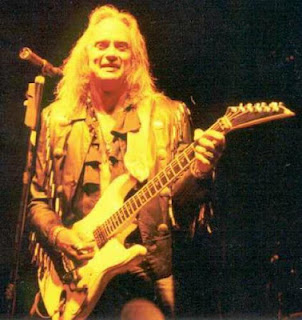Whistle Down the Wire
This was their third album together and, with it, Crosby and Nash proved that the wealth of excellent songwriting they showed in their first two albums was far from exhausted.
Although I couldn't say that the sound here is a departure from the brand of musical beauty they had listeners already accustomed to -although I can't imagine anyone not gasping in wonder at their harmonies, even if he or she were anxiously expecting them -and the core band remains close to prior albums, this is not quite the same than its predecessors.
The mood of "Whistling Down the Wire" is different, there's a certain melancholy to it which I did not think as present before and, particularly in Nash's tunes, a somber tone than in prior compositions. "Marguerita" and "Broken Bird" are gorgeous examples of Graham's depth of feeling, proving that his "sweet" or "tender" spirit does not mean that the man is a "light" composer.
Crosby, it's worth saying, sings two songs of his own fitting with the emotional urgency of Nash's offerings, and clearly belonging to the list of his most powerful compositions. "Time After Time" and, perhaps even more, "Foolish Man" will leave you speechless, and justifiably comparing them with some of his prior classics.
All in all, this album is a must and a testament to one of the most significant and long-lasting musical pairs in popular music, for the last thirty years.
Released in 1976, "Whistling Down The Wire" is the third proper album from the duo pairing of David Crosby and Graham Nash--it's very much of a piece with 1975's "Wind On The Water"--and you can't go wrong with it if you love these guys. The album-opening "Spotlight" is a wonderfully joyful song about playing live and sharing experiences through music. Nash contributes two of his all-time great solo compositions--the somewhat funky "Mutiny" is hauntingly powerful, ultra-melodic with great chorus hooks, and has blistering layers of electric guitars on the fade (incredible leads from David Lindley and Danny Kortchmar); and the strangely sorrowful, waltzing ballad "Marguerita" is gorgeously melodic and understated. Crosby gets in a spellbinding solo composition of his own with the dynamic, bluesy, supremely soulful confessional "Foolish Man"--it features dreamily wistful verses that work their way up to cathartic climaxes. Crosby also supplies "Dancer", a compelling wordless harmony-fest, matching peacefully innocent-sounding verses with amusingly frustrated-sounding grunting on the choruses; and the super-slow, sighing ballad "Time After Time" which is very pretty and touching--it really gets under your skin.
"Taken At All" is quite pretty also, although it's a little on the sugary-sweet side. The Crosby and Nash-penned "Broken Bird" is a soothing ballad that sounds like a cross between the aformentioned "Marguerita" and "Foolish Man".
A couple of the songs are forgettable. The reggae-fied "J.B.'s Blues" is pleasant enough, but dull. And the album-closing orchestrated ballad "Out Of The Darkness" is a bloated, overproduced attempt at a peace-and-love anthem.
Overall, "Whistling Down The Wire" is a fine album from these two legends, and if you're turntable-ready, I recommend being on the lookout for a vinyl copy. The 2000 CD release, which I believe is the first and only time the full album has ever been officially issued on CD, is hard to come by without forking over some serious money, which is curious since the similarly remastered/ reissued "Wind On The Water" remains in print; it's also regrettable since it's excellently remastered and has informative, if disappointingly brief, liner notes. Another possible choice is the in print 2002 "The ABC Years" CD--it does contain 7 of "Whistling Down The Wire"'s 10 tracks, but it unfortunately omits "Dancer" and "Marguerita".








































